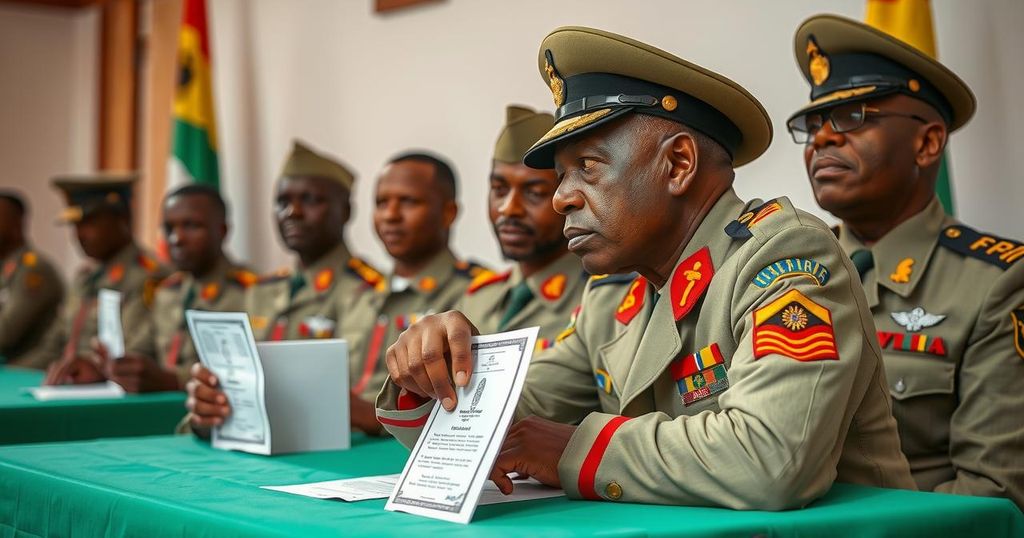Chad Conducts Parliamentary Elections Amid Opposition Boycott and Criticism
Chad held parliamentary elections on Sunday, marking a transition from military rule amid a boycott by major opposition parties, which criticized the electoral process’s legitimacy. This election is notable as it follows a disputed presidential election won by junta leader Mahamat Idriss Deby. Approximately 8 million voters are registered to elect new legislators amid widespread accusations of electoral manipulation from the opposition.
On Sunday, the citizens of Chad participated in parliamentary and regional elections, marking an important transition from three years of military rule. These elections, however, were notably boycotted by the major opposition parties, who criticized the legitimacy of the electoral process. This parliamentary election represents the first in over a decade and follows a controversial presidential election in which junta leader Mahamat Idriss Deby was declared the winner. Since Deby’s ascent to power in 2021 following the death of his father, the nation has experienced instability in its political landscape.
With approximately 8 million voters registered to elect members of the new National Assembly, the elections are significant not only for their potential to establish democratic processes but also because they are a litmus test for opposition engagement. Major opposition parties, including the Transformers party led by Succes Masra, have labeled the elections a “charade,” alleging that they are a facade for Deby to solidify his power. Masra urged voters to refrain from participating, suggesting that the election results would be manipulated.
The political landscape in Chad has faced persistent challenges since independence from France in 1960, with no secure transfer of power. The current elections are the first stage towards restoring democracy after the transitional military government took over. The opposition has indicated that without their participation, the election lacks credibility, further undermining the already tenuous political situation facing Chad.
Chad currently grapples with multiple security threats, ranging from militant activities in the Lake Chad region to deteriorating relations with France, its historical ally. Political scientists suggest that this election represents a critical juncture for Chad’s stability as it attempts to escape the shadow of military rule and embrace democratic governance. The absence of significant opposition raises concerns about the integrity of the electoral process and the future of democracy in Chad.
The context surrounding the parliamentary elections in Chad is steeped in a history of political turbulence and military governance since the country gained independence in 1960. The current elections are a significant turning point following three years of military rule under the leadership of Mahamat Idriss Deby, who took power in 2021 after the death of his father, Idriss Deby Itno. The political landscape has been marred by allegations of electoral misconduct, particularly concerning the recent presidential election. With the opposition choosing to boycott the parliamentary elections, the legitimacy of this electoral process remains contentious, posing a threat to the fragile political progress in the country.
In conclusion, the parliamentary elections in Chad signify a critical attempt to transition from military rule to democratic governance, despite significant opposition boycotting the process. The allegations of electoral impropriety and manipulation have cast a shadow over the elections, raising concerns about their legitimacy and the future of democracy in Chad. With the backdrop of security challenges and a troubled political history, the outcome of these elections will play a vital role in shaping the nation’s immediate political future.
Original Source: abcnews.go.com




Post Comment